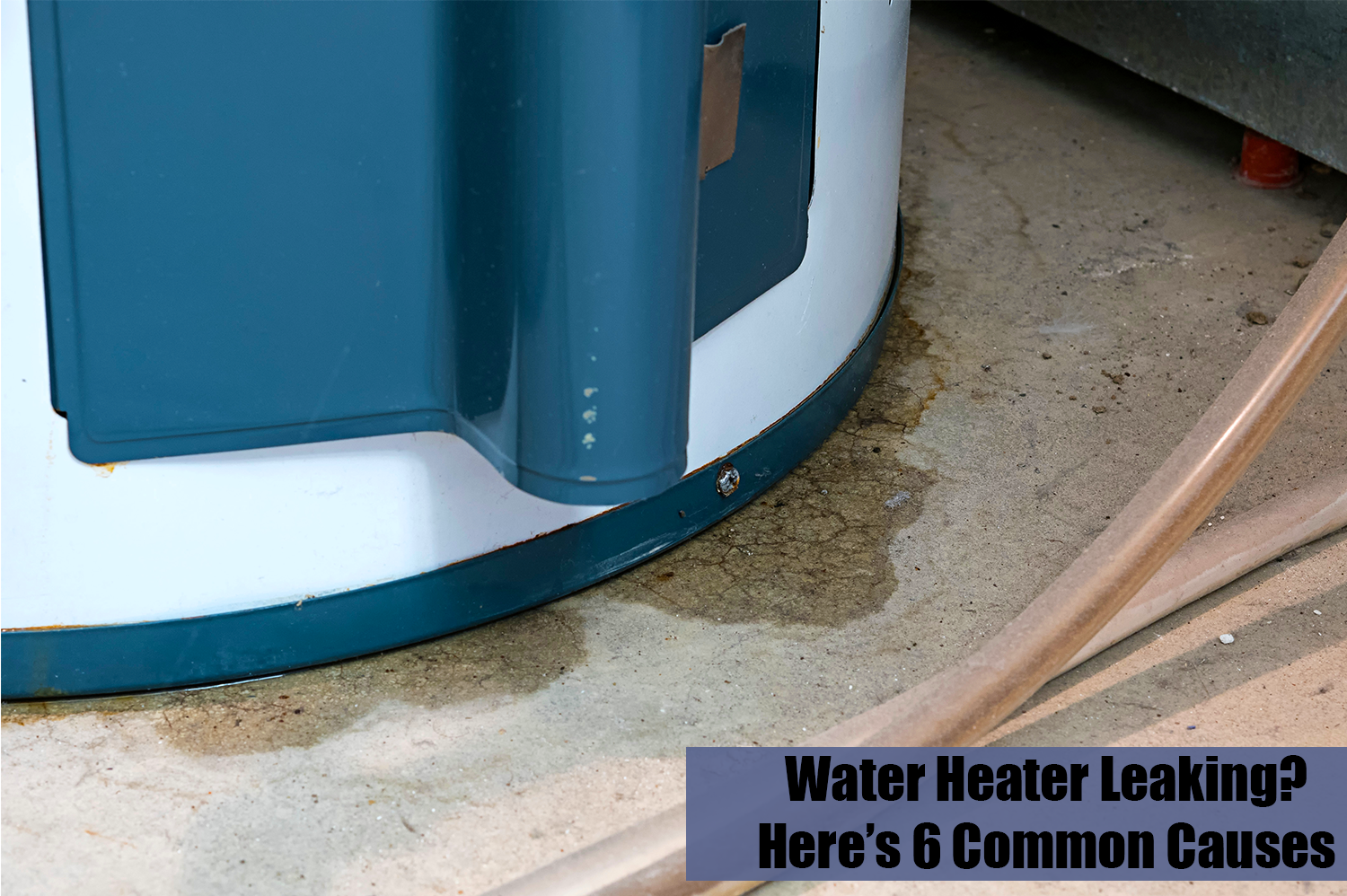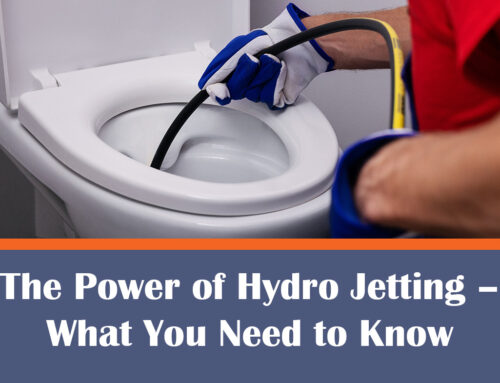Dealing with a water heater leaking? Let’s help you get to the bottom of it. Here are six common causes of why water heaters leak and what’s needed to fix them.
Water Heater Leaking – Where the Water Comes From
When a water heater leaks, the location of the leak can tell a lot about it. It can also help rule out certain problems and find the cause of the leak more quickly. So, it’s good for homeowners to understand where leaks can occur and what each means.
- Top leaks – Cracks usually don’t occur on the top, so it’s safe to rule that cause out. A top leak can indicate loose temperature and pressure relief valves or anode rod corrosion.
- Bottom leaks – If a leak is in this location, either the drain valve or the tank itself causes water heater leaks.
- Leaks inside tank – Unfortunately, leaks inside the tank are impossible to see on the outside. Age and deterioration are typical causes of leaks inside the tank.
- Undetermined location – Sometimes, water can seemingly come from nowhere. In these cases, you’ll notice water pooling underneath the unit. Too much pressure can be a cause of this leak.
Causes of Leaks
Now that we’ve gone over the locations of leaks and what they can mean, let’s dive in a little deeper into the causes of a leaking water heater.
Old Tank
Just like with other household appliances, water heaters don’t last forever and will wear down as they age. As the unit ages, parts wear out, water doesn’t keep its warmth, and leaks occur more frequently. A water heater leaking due to old age sometimes happens due to rust forming in the tank. As the inside tank corrodes, cracks form that allows water to escape. Patching the cracks is possible, and that will buy you some time, but it’s truly only a temporary fix. The way to fix an old tank is to replace your water heater unit.
Damaged or Loose Drain Valve
Noticing water pooling at the base of your water heater? As mentioned above, it could be due to a damaged or loose drain valve as that’s located near the bottom of the tank. This valve is used to drain the tank for maintenance as well as tank cleanings. The valve can loosen over time, which allows water to leak through.
Often, simply tightening the valve is what will fix this issue. However, if the valve is loose at its base, that indicates the component isn’t watertight, and a new drain valve is necessary. Homeowners can replace the valve themselves, but it’s always a good idea to hear what a plumber has to say first before you head to your home improvement store.
Deteriorated Gasket
If you have an electric heater, the gasket is what holds the heating elements in place. Sometimes, this element can wear down. When a gasket deteriorates, it can leave a small hole for water to leak out. And because the gasket is located near the top and bottom of the tank, a leak could happen in either of those spots. Replacing gaskets requires a full drain of the water heater tank and the removal of electrical components, so calling in an experienced plumber is likely your best bet to get this type of leak solved.
Faulty Temperature and Pressure Relief Valve
A water heater leaking can also occur because of a faulty temperature and pressure relief valve. Your water heater will naturally create pressure as it increases the water’s temperature. When the pressure of your water heater tank gets too high, the valve allows steam to escape the unit and return to a stable temperature. But when this valve doesn’t work, the pressure in the tank increases, causing cracks and then leaks.
Sometimes the valve becomes loose and needs some simple tightening. But if the part is faulty, it’s going to need to be replaced.
Corroded Anode Rod
The anode rod is a vital element in your water heater as it helps to remove corrosive components in the water tank. However, over time, those harsh corrosive elements can cause the anode rod to wear down and become nearly nonexistent. Water can then leak through the space where the anode rod used to be.
A simple anode rod replacement will fix this issue. But you’ll want to fix this issue quickly as when an anode rod isn’t present to remove corrosive substances, those substances can corrode the tank until cracks form, and then you’ll have more water leaks on your hands.
Sediment Collection
If you forget to schedule maintenance to clean or flush out your tank, sediment can build up at the bottom. While it may be “out of sight, out of mind” for you, the sediment can build and eventually cause the unit to crack. This can cause mild to severe water leaks in your home. And if the tank leaks, all you can do is replace it. To avoid this from happening, hire your local plumber to come and perform maintenance on your water heater regularly.

Our team of expert plumbers offers dependable water heater repair and replacement services.
Water Heater Leaking? City Plumbing Services is Here to Help
When you find your water heater leaking, contact City Plumbing Services. Our team of expert plumbers offers dependable water heater repair and replacement services. We’re located in Cave Creek but are ready to help those in Phoenix, Paradise Valley, Chandler, Surprise, and most of the East Valley of Arizona.





